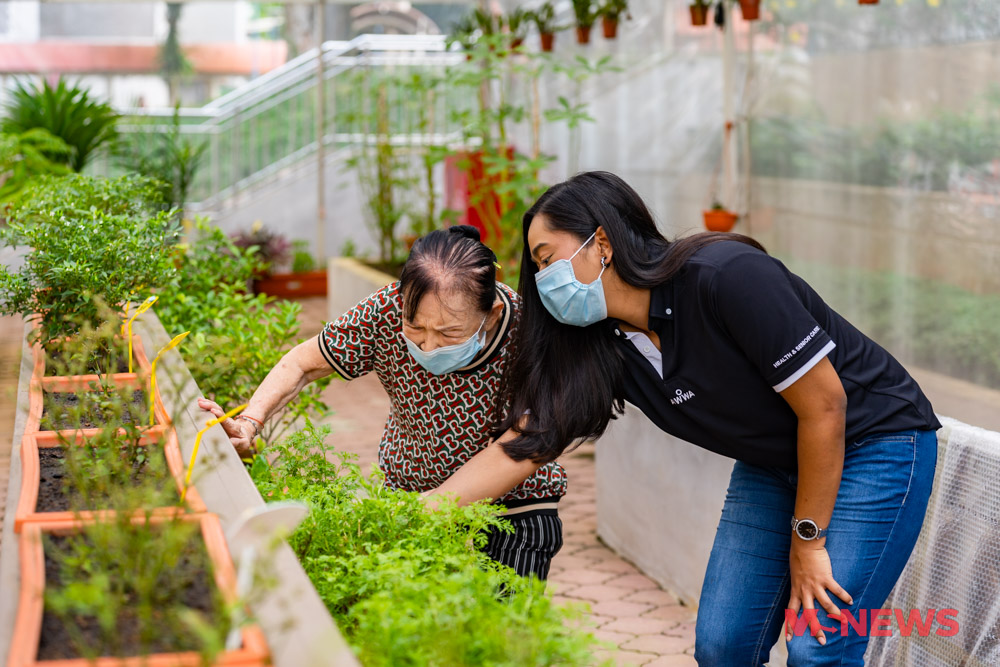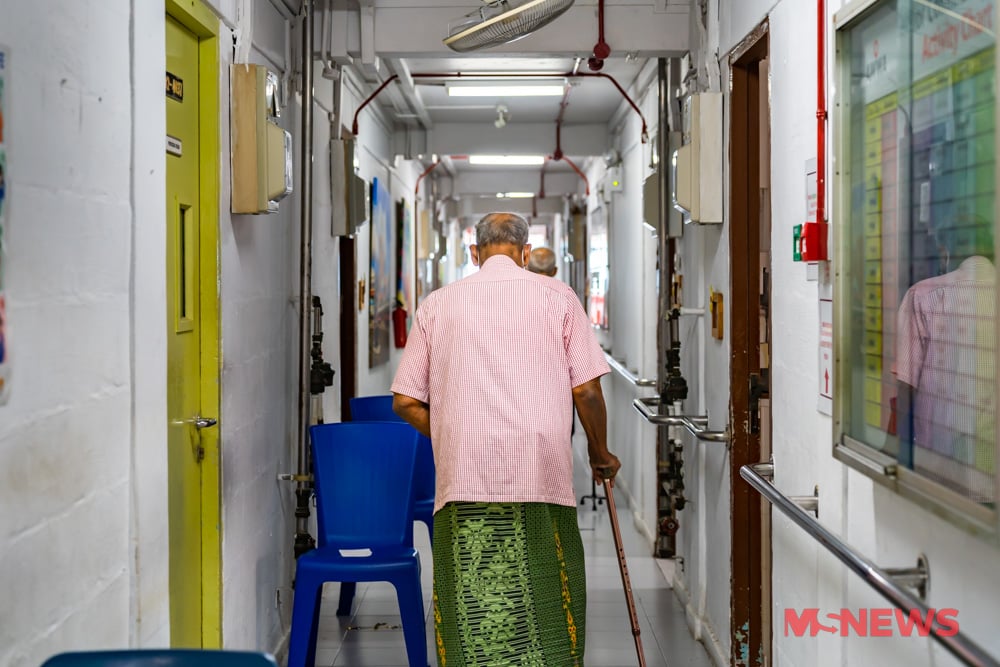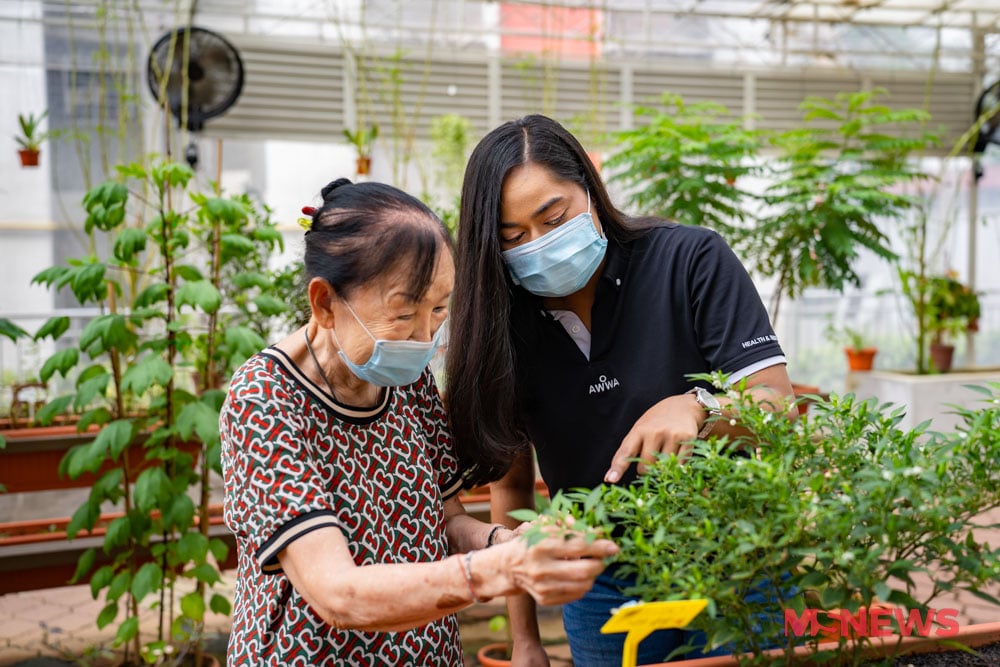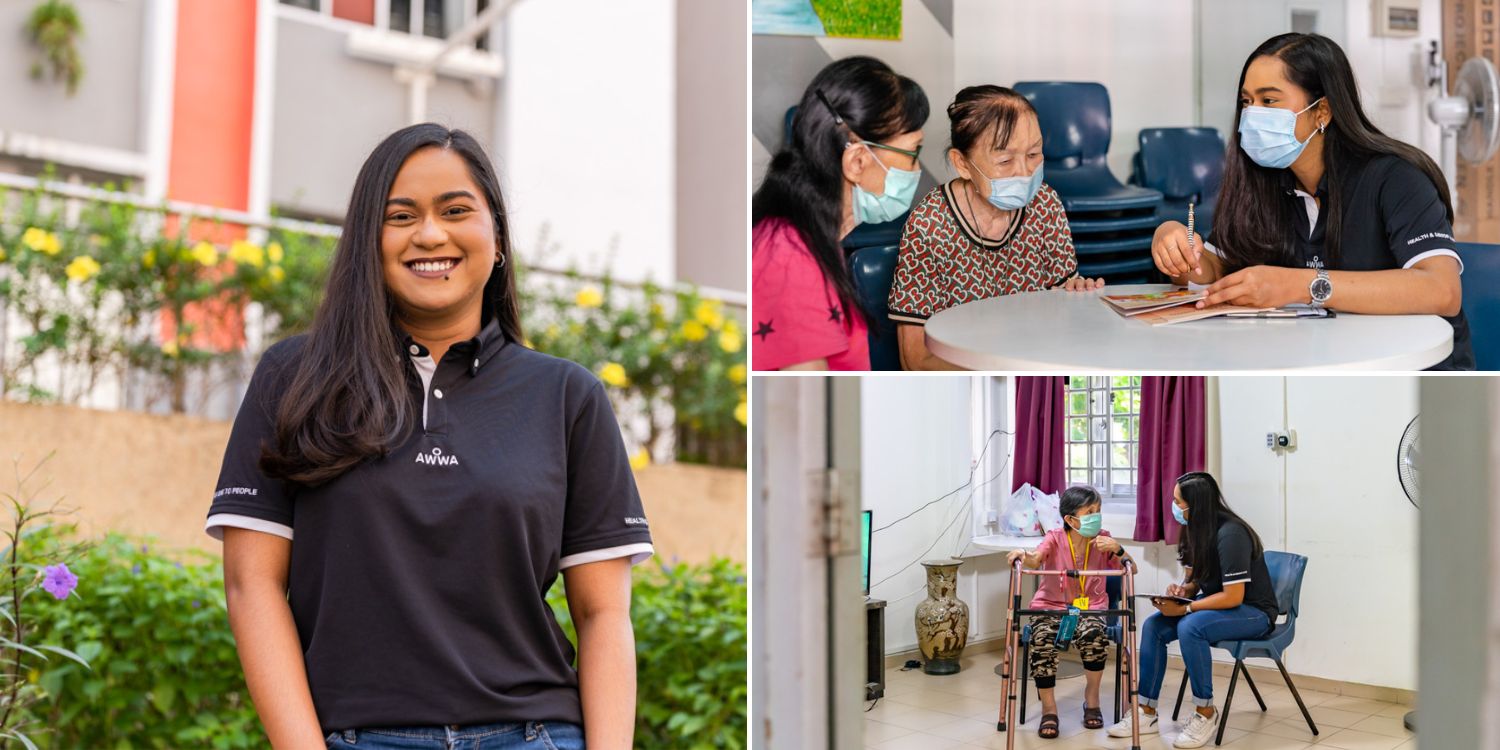27-Year-Old Social Worker Shares Lesser-Known Facts About Her Job
Being a social worker is so easy.
It’s a job that doesn’t require training at all.
These passing remarks are what 27-year-old Norshaqilah Zabah, or Shaq, often hears throughout her past seven years as a social worker.
Due to the nature of her job, Shaq is no stranger to serving the community. She helps vulnerable individuals with daily tasks, such as bathing and getting dressed.
On the surface, her job may look mundane and repetitive, but there’s more to it than meets the eye. As someone who works closely with the elderly, witnessing deaths has become a significant part of her life.

It’s heartbreaking, but she soldiers on. Shaq tells MS News what keeps her going despite the many difficult moments in her career.
Spent most of her youth as a social worker
Meet Norshaqilah Zabah, or Shaq, a 27-year-old social worker who has been working with social service agency AWWA for the past seven years.
She cut her teeth at the Singapore University of Social Sciences (SUSS), pursuing a part-time degree in social work, before joining the senior care division at AWWA Senior Community Home.
Shaq recalls how she spent most of her early years surrounded by a warm community of social workers and elderly folk.

“I’ve been with AWWA for seven years since I was 19. The seniors here would normally comment on my age and say things like, ‘Wah, you can be my granddaughter already!'”
Starting in this field at such a tender age is never easy, not for Shaq at least. But she found her true calling in working with people after seeing how a social worker cared for her 14-year-old nephew.
“My nephew did not speak for the first few years of his life. We were shocked to find out later that he was deaf.
“My family got a social worker to care for him, and she provided him with a lot of support and resources to cope,” she shares.
Inspired by the social worker, Shaq decided to become one herself. Naturally, she chose to take a diploma in Social Work at Nanyang Polytechnic after ‘O’ Levels. At the same time, she signed up as a part-timer at AWWA to get early exposure to the job.
She stayed in her role as a social worker there even after graduating in the hope of helping those in need.
Though the decision seems like a no-brainer to a casual onlooker, it came after a rather challenging start to Shaq’s social work journey. Despite her drive to help others, she shares that she initially harboured doubts about her capabilities.
At the beginning, I felt inexperienced and at times awkward when interacting with the elderly.
But Shaq later realised that sincerity played a huge part in helping her build new connections.

“What I lacked in experience, I tried to make up for with enthusiasm and sincerity. I remember one of the senior staff sharing that the elderly can sense when someone is being genuine with them. Only then would they be willing to open up to you.”
Took up language training to communicate with the elderly
Like any other first-timer in a new job, finding her bearings was intimidating.
Feeling like a lost bird at first, Shaq recalls how she could not understand what the seniors were telling her because of the unfamiliar dialects. The most she could do back then was to speak a few basic phrases in Mandarin.
“Many seniors could only speak their dialects. So if I couldn’t understand them, I would have to refer them to my colleagues who can communicate with them.”
Facing setbacks like these caused Shaq to struggle as she often felt demotivated and helpless.
If I’m unable to support them in the way I want to, I’ll feel disappointed in myself.
This obstacle prompted Shaq to go the extra mile and take up language training so she could better understand the elderly’s concerns and accurately address their daily needs or worries.
Our seniors usually converse in English, Mandarin, Malay, and sign language. So I attended a training on Conversational Hokkien to learn some basic phrases to engage the seniors more effectively.

She now applies what she has learnt, including saying simple phrases like, “Have you eaten?” and “How are you?” in Hokkien in daily conversations. However, she laughingly admits that her pronunciation is not that great.
Thanks to her positive attitude, Shaq has managed to cross the hurdle that once held her back.
“I managed to memorise 200 names in the first year, including the names of the Chinese seniors,” Shaq chuckles humbly.
Every death affects a social worker deeply
As much as learning Hokkien was a considerable achievement, there were much tougher challenges in store on the job.
For one, Shaq has had to face death quite often since she works closely with seniors.

“Death is inevitable. But coping with the death of a senior we’ve worked with is quite challenging,” she confesses.
As Shaq maintains her composure, she adds that she will try to regulate her own emotions and thoughts, apart from gradually normalising these moments as part of life.
Having been in this line for close to a decade, she’s aware of the public conception that witnessing a senior’s demise is normal for them.
Even so, Shaq insists that they’ve not grown impervious to it. “People may think you’ll become immune to it, but each death is still difficult.”
We know the seniors on an individual level. In fact, I think I spend more time with them than with my own parents. So when they pass on, it’s quite hard. I can feel their absence.
Remembering a senior who outlived his prognosis
One particular case that has stuck with her throughout her career involved a senior who had been diagnosed with cancer.
“This case was unforgettable to me not because of his death but because of his life.”
The senior was a quiet man who often kept things to himself. Shaq and her other colleagues only learnt of his circumstances after his neighbour visited AWWA to seek help. The man apparently went against his doctor’s orders and discharged himself from the hospital.
Things did not start smoothly when Shaq met this introverted senior.
“At the start, he was very reluctant to share anything with us or attend his medical appointments.”
But this hurdle did not stop Shaq from giving up on the elderly man. She managed to get the senior to eventually open up to her and even agree to seek medical treatment through sheer persistence.
What struck Shaq the most was that even in the final stage of his life, the senior smiled often. She also clearly remembers how he sometimes cracked jokes despite battling cancer without showing any signs of pain.
“He was one of the most resilient people I know. He outlived the prognosis given to him by a couple of years.”
In fact, as odd as it seems, Shaq now shifts her views toward the seniors’ partings as a source of motivation. She felt moved after witnessing how the different professionals, including nurses, doctors, home care staff, and other social workers, go the extra mile to support one elderly man.
We all came together to ensure that he continued to stay in the community, where he felt most comfortable and familiar, for as long as possible.
Realising seniors are resilient & adaptable
Having the chance to build tight connections with the elderly in the home has given Shaq a new perspective on them as a whole.
To her, the biggest takeaway of being a social worker in Singapore is realising that we should not simply assume that the elderly folk are weak and dependent.

“They have a lot of strengths. They can harness the power of the community, whether through members of the public or their neighbours and friends.”
Shaq also reminds the seniors that they are not alone and that there are many resources around them.
“It’s just a matter of helping them open their eyes so they can overcome obstacles or adversity.”
She stresses that the elderly have this strong kampung spirit and are often confident that they can depend on each other in times of need.

Though we may not see it, Shaq herself has observed that the seniors are resilient and able to adapt. Highlighting Singapore’s goal to be a Smart Nation as an example, she claims that the seniors are actively attending classes to gain digital skills and knowledge.
“Although it may be challenging for them to pick up these skills at the start, they are determined to do so to ensure that they are moving with the times.”
Hopes to keep serving our pioneers
If there’s one thing that keeps Shaq going with this job, it is the opportunity to serve the seniors, no matter how taxing or overwhelming it can get sometimes.
Her strong desire to help strengthen a sense of community and volunteerism has probably fuelled her longstanding passion for being a social worker here.
“I hope to grow a more steady, dedicated, and robust group. That way, we can all work together and improve the seniors’ quality of life, and they will continue to stay in our community for as long as possible.”
She wishes more of us will not be afraid but instead, be brave to step forward and join in to help the elderly.
“The volunteers here do make a difference. They help make our social workers’ jobs easier when we need more assistance.”
Above all, being a social worker is not easy. Shaq struggled to get to where she is now, where she’s comfortable enough to keep serving the elderly for as long as possible.
Hopefully, Shaq’s inspiring story can encourage more people to play a part in giving back to the community and looking after the pioneer generation.
If you are keen, you can reach out to AWWA here.
Know more inspiring individuals like Shaq? Get in touch with us via email at news@mustsharenews.com.
Featured image by MS News.







